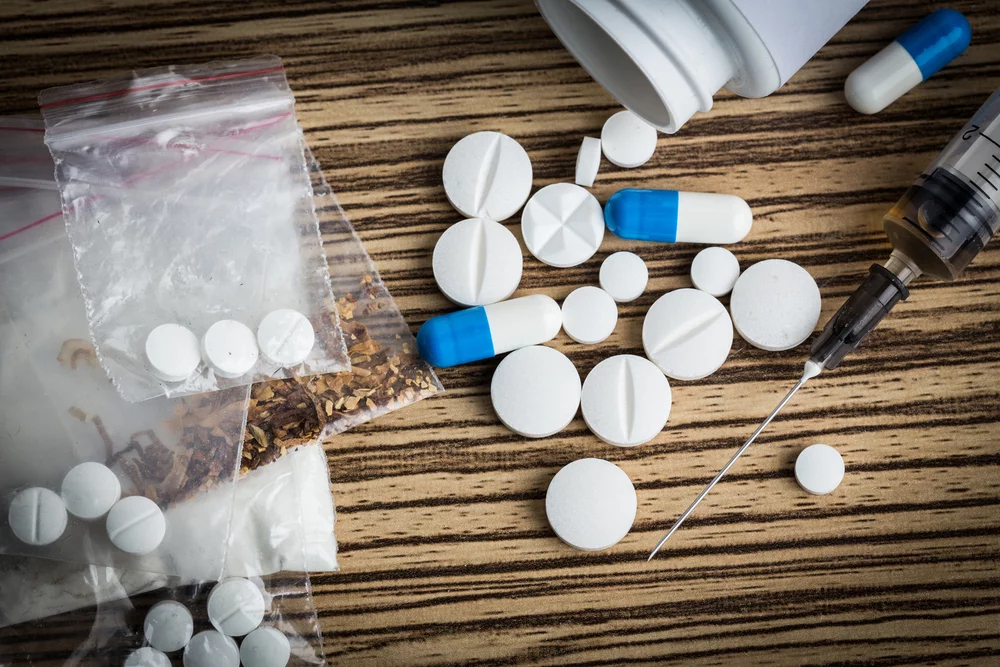Opioid addiction is a very serious condition that often occurs after a patient is put on prescription painkillers or forms a habit from using street drugs. In the United States alone, over 2 million people have become addicted to opioids, sometimes with devastating results for themselves and their families. As doctors continue to prescribe opioids to their patients, the issue of addiction becomes ever more serious – with an average of over 130 opioid overdose deaths in the US every single day. By far the best method of breaking such an addiction is through opioid replacement therapy.
Opioid Abuse and Its Effects
Although symptoms of addiction may vary from person to person, opioids generally cause similar behavioural effects as other addictive substances. These include the user’s inability to stop taking the drug, or inability to stop themselves from taking more than the recommended or prescribed amount.
Common Symptoms of an Opioid Addiction Include:
- Nausea or vomiting
- Constipation
- Poor coordination
- Dramatic mood swings
- Disrupted sleep patterns
- Fatigue
- Slurred speech
- Anxiety attacks
It is also essential to recognise the signs of an overdose, in order to get medical attention as quickly as possible if the need should arise. Overdose symptoms include the following:
- Loss of consciousness
- Being unresponsive when efforts are made to awaken them
- Slow, irregular breathing
- Slow, irregular pulse
- Vomiting
- Constricted (small) pupils in the eyes
If you notice someone with these overdose symptoms, contact emergency services immediately.
Understanding Opioid Addiction
Oxycodone (OxyContin), hydrocodone (Vicodin), codeine, morphine, fentanyl and several illegal drugs – including opium and heroin – are classed as opioids. They work by binding to specific receptors in the brain, spinal cord and other parts of the body, and activating them. By causing the release of dopamine in the brain, some types of opioids cause a chemical high that can be intoxicating. Once a habit is formed, the body can experience strong drug cravings and withdrawal symptoms if those cravings are not satisfied.
At the same time, the physiological changes associated with opioid use can cause an addictive habit to form rapidly. The body actually becomes dependent on the drug, making efforts to quit ‘cold turkey’ much more likely to fail. Severe withdrawal symptoms and a high probability of relapse mean that independent efforts to quit are usually misguided. For a greater chance at success, a more structured treatment plan at an opioid rehab centre may be needed.
Making the Transition: Opioid Substitution Therapy
Drugs such as methadone and buprenorphine function in much the same way as harmful opioids, but without causing the rollercoaster effect of high highs and low lows that other opioids create. They also last longer, eliminating cravings by functioning in a way analogous to nicotine patches for cigarette smokers.
Rather than simply ‘substituting one drug for another,’ the transition to methadone or buprenorphine represents a huge step in the right direction for patients. A new and productive life suddenly becomes possible again as a result of the mediating effect that these opioid substitutes offer – along with dramatic improvements in terms of health, safety, and mentality.
Selecting the right drug for opioid maintenance therapy is an important step in the process, and requires a thorough consultation with a qualified doctor. There are subtle differences between methadone and buprenorphine which can lead to significant effects if the patient has an underlying mental health issue.
By providing chemical and emotional stability, this form of opioid maintenance therapy allows the patient to be monitored effectively by doctors, turning an otherwise serious addiction into a manageable state of affairs.
Comprehensive Opioid Addiction Treatment
It is important to note that opioid substitution therapy requires years of treatment, and is only one part of a complete programme of recovery. Successful recovery means also addressing the behavioural and emotional aspects of addiction through therapy, peer support and other methods.
Detoxification
A well-equipped drug detox facility is needed to provide full assistance through the initial detoxification process, with medical support and a clinical team in place to handle every pressing concern.
Therapy and Counselling
The opportunity then opens for therapy and counselling programmes to rehabilitate patients into a healthier mindset and behavioural pattern for long-term improvement. Cognitive Behavioural Therapy is another important resource to help patients ease away from their addictions, guiding their thought patterns in a positive direction when certain types of triggers arise.
Peer Support
Group and individual therapy sessions are also recommended for patients in treatment centre, to provide guidance, perspective, and advice on how to achieve success in the recovery effort. Patients can receive considerable comfort from the intangible benefit of being surrounded by people who are going through similar struggles.
Psycho-education
Opioid maintenance therapy requires both a short-term and long-term focus. It is essential to transition the patient away from harmful opioids in favour of benign substitutes, but the treatment programme must also prepare the patient for a life without opioid addiction. This involves learning the ability to overcome depression and behavioural triggers, through effective coping mechanisms and continuous support.
Patients must internalise a new set of healthier incentives, which can teach and reinforce a variety of positive behaviours. Their new focus must involve rediscovering a powerful inner base for motivation, which can lead them forward to clean and healthy living.
Contact The Dawn Rehab Thailand
The Dawn offers full support for those addicted to opioids and other drugs. Through detoxification and focused addiction treatment, we guide each patient back toward a healthy lifestyle, teaching special tools and behaviours to resist the effects of addiction.
We also provide a special online aftercare support network so that patients can continue receiving valuable guidance and support long after they have received our services. In case of difficulties down the road, we offer a special Relapse Assurance Guarantee to every patient who has completed our full recovery course. If any such patient should suffer a relapse, we will welcome them back at The Dawn for 28 additional days of treatment at no extra cost, to get them back on the path to recovery.
To find out more about our opioid addiction treatment programme, contact The Dawn today for an immediate assistance.
Related Posts
 What You Need to Know About Opioid Withdrawal Symptoms, Detox and Treatment
Opioid addiction is becoming a global problem and is currently the primary cause of drug overdose in the U.S. Opioids such as morphine and codeine are synthetic drugs that cause the...
What You Need to Know About Opioid Withdrawal Symptoms, Detox and Treatment
Opioid addiction is becoming a global problem and is currently the primary cause of drug overdose in the U.S. Opioids such as morphine and codeine are synthetic drugs that cause the...
 The US Opioid Epidemic: Killing More Americans Than Vietnam
The US opioid epidemic is causing drug overdose deaths to skyrocket – to an unprecedented 64,070 in 2016. That’s more Americans killed than by the Vietnam War. In the same...
The US Opioid Epidemic: Killing More Americans Than Vietnam
The US opioid epidemic is causing drug overdose deaths to skyrocket – to an unprecedented 64,070 in 2016. That’s more Americans killed than by the Vietnam War. In the same...
 Too Much to Take: Warning Signs of Drug Overdose
The possibility of overdose is a harsh reality for those dealing with drug addiction. Knowing the specific signs of an opioid, benzo, alcohol, or stimulant overdose can save a life....
Too Much to Take: Warning Signs of Drug Overdose
The possibility of overdose is a harsh reality for those dealing with drug addiction. Knowing the specific signs of an opioid, benzo, alcohol, or stimulant overdose can save a life....
 Opioid Treatment – A Way Out for Addicts Trapped in the Prescription Drug Disaster
The need for opioid treatment around the world is increasing as the opioid crisis deepens. In the USA, in 2016, 64,000 people died from opioid overdoses. Australia has seen a...
Opioid Treatment – A Way Out for Addicts Trapped in the Prescription Drug Disaster
The need for opioid treatment around the world is increasing as the opioid crisis deepens. In the USA, in 2016, 64,000 people died from opioid overdoses. Australia has seen a...





